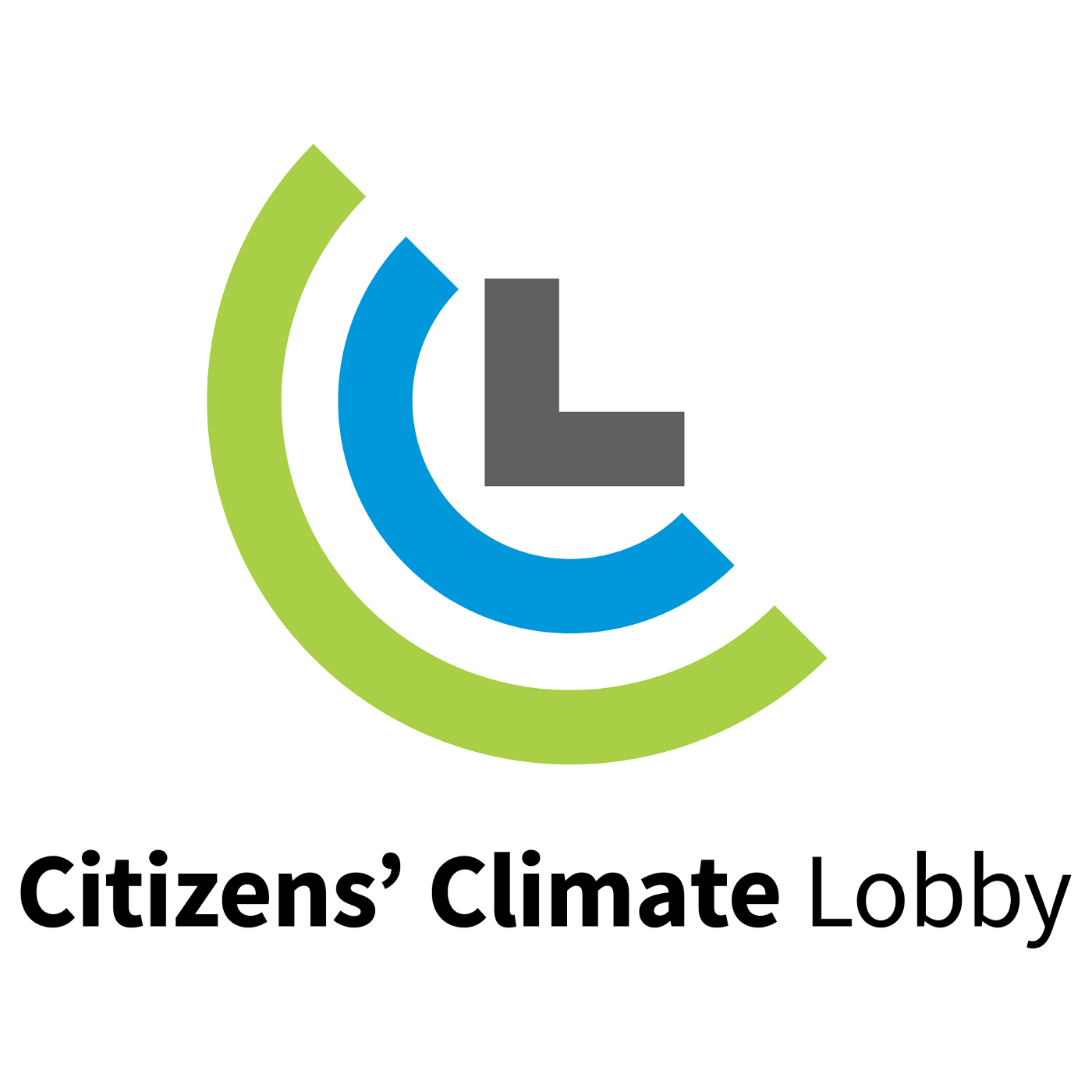Episodes
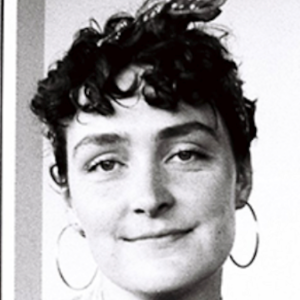
Saturday Sep 09, 2023
Madeline McGill | September 2023 Monthly Speaker | Citizens’ Climate Lobby
Saturday Sep 09, 2023
Saturday Sep 09, 2023
Madeline began her political career working for campaigns, nonprofits, and labor unions across New England. In 2018, she moved to Utah to help found the Rural Utah Project to empower underrepresented voters, bringing its fundraising and communications programs online. Two years later, she built an organic digital and earned media program with an advertising equivalent of $11.1M across the rural Southwest. Since then, Madeline has continued her work as a narrative strategist, driving outcomes for nonprofits, labor unions, and candidates for office who are curious to engage with people who call rural landscapes home. Her notable projects include National Nurses United, The Sierra Club, SEIU, and the Rural Democracy Initiative. She's proud to partner with the Rural Climate Partnership on building a transformative narrative framework for hardworking rural people. Madeline lives in Boulder, Utah, a town of 250 people, where she searches for new watering holes with her border collie, Melon.
Sept 2023 Monthly Pre-Call Video: https://vimeo.com/862666362
About Western Desk: https://www.westerndesk.com/about
Presentation Slides: https://docs.google.com/presentation/d/1Yuj-MRcQ-yS2D9m1VAf7IsdGzZ3WAu_C/
Action Sheet: https://cclusa.org/actionsheet
Call Congress: https://cclusa.org/take-action
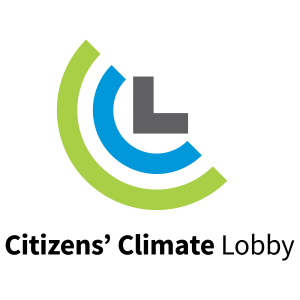
Saturday Sep 09, 2023
CCL Training: Highlight Your Local Climate Impacts With Regional Climate Slide Decks
Saturday Sep 09, 2023
Saturday Sep 09, 2023
Join CCL's Research Coordinator Dana Nuccitelli for a special training on Dana's work assembling region-specific climate impacts presentation slide decks. These slide decks detail the most important climate change impacts for each of the seven regions in the continental United States. Each slide includes the scientific source references in the notes, which are primarily the 2018 Fourth National Climate Assessment Report and the Working Group I of the 2021 Intergovernmental Panel on Climate Change Sixth Assessment Report. These are the most comprehensive and authoritative assessments of the latest and greatest climate science research pertaining to the United States and world, respectively, but other individual papers are referenced in the slides as well.
Skip ahead to the following section(s):
(0:00) Intro & Agenda
(3:24) Overview & How To Use The Slides
(6:45) Background Research
(10:06) The Southeast
(15:51) Southern Great Plains
(21:26 The Southwest
(26:42) The Northwest
(31:09) The Northern Great Plains
(36:10) The Midwest
(40:16) The Northeast
(42:56) Pairing with Solutions
Presentation Slides: http://cclusa.org/local-impacts-training
CCL Community Training Page: https://community.citizensclimate.org/resources/item/19/52

Friday Aug 25, 2023
CCL Training: Progress & Prospects for Carbon Pricing Around The World
Friday Aug 25, 2023
Friday Aug 25, 2023
Join economist and superstar CCL volunteer Jonathan Marshall for a training that will review what is going on around the world in other countries and subnational governments in terms of carbon pricing. Jonathan will review some recent innovations, recommendations on what other countries are learning from the best available designs and how these lessons can apply to our own advocacy here in the United States.
Skip ahead to the following section(s):
(0:00) Intro & Agenda
(2:52) Why Carbon Pricing Is Needed As Much As Ever
(11:25) Carbon Pricing is Expanding Worldwide
(15:06) Time to Advocate for Carbon Dividends
(23:20) For More Information
Presentation Slides (with embedded study links): https://cclusa.org/carbon-pricing-around-world
CCL Training: https://community.citizensclimate.org/resources/item/19/138

Friday Aug 25, 2023
CCL Podcast TikTok, Daryl Hannah, and Barbie Take on Climate Change
Friday Aug 25, 2023
Friday Aug 25, 2023
In this episode, we're diving into the creative and innovative ways people are reaching the public about climate change. We feature TikTok influencers and a special announcement on behalf of a major toy company.
TikTok's Climate Challenge: Humor and Creativity for Impact
Creative communicators are harnessing TikTok to engage their followers with climate change messages. TikTok is known for its short, engaging videos, and we talk to two content creators who are using the platform to reach and educate younger audiences in a fun and creative way.
Preeta “Prach” Banerjee is better known as @Prachonearth, a passionate climate activist who aspires gain a TikTok following as she shares her day-to-day life while promoting climate change awareness. A pre-med student at Purdue University, Prach volunteers with Citizens Climate Lobby and the Carbon Fee and Dividend Movement, Prach speaks with Citizens Climate Radio team member, Ruth Abraham and offers insights into her creative process, which involves spontaneity, authenticity, and connecting with viewers on a personal level.
Cyrus Ferguson is a NYC based strategist, digital creator, and writer. He produces and hosts TikTok shows that imagine new paths for brands to connect to viewers, and if you’re on Art-Tok, you’ve likely seen his “Unintentional Sculpture Analysis.” Cyrus playfully analyzes everyday scenes as if they were works of art, bringing a fresh perspective to mundane objects and encouraging viewers to engage with climate change through imagination and play. With nearly 200,000 likes and over 2400 comments, Cyrus’ Unintentional Sculpture Analysis #13 REFORM is engaging viewers in a ridiculously serious conversation about climate change. He explains his process and shares expert tips and guidance for content creators.
Cyrus Ferguson is currently Content Director at Bilt Rewards, advisor for venture studio Kairos HQ, content creator for brands like Instagram and GQ, and previously worked with award winning creative teams at Recess and Domino Magazine.
Both Prach and Cyrus highlight the importance of authenticity and personal connection in their content, underscoring the potential for TikTok to be a powerful tool for climate communication.
Citizens’ Climate’s Research Coordinator, Dana Nuccitelli, delves into the Inflation Reduction Act (IRA). Dana breaks down the financial incentives offered by the IRA to encourage household electrification and energy efficiency improvements. From tax credits to upfront rebates, the IRA aims to make sustainable choices more accessible and affordable for households across the United States. Dana emphasizes the significance of these incentives in reducing building emissions and promoting cleaner energy solutions. Oh, and you can see Dana talking about Permitting Reform on Citizens Climate’s TikTok channel.
Visit The Nerd Corner for more easy-to-understand explanations by Dana and the team.
Good News Story Eco Warrior Barbies: Daryl Hannah's Major Announcement!
After actress and eco-activist Daryl Hannah shared a groundbreaking announcement on behalf of the Mattel Corporation, the company behind Barbie dolls, Citizens Climate Radio host spoke with Daryl about this big bold move.
Earlier this month at Los Angeles press conference, Daryl announced that Mattel has committed to going 100% plastic-free by 2030 and aims to support a global ban on plastics. To celebrate this important shift in toy production, Mattel will release a line of fully biodegradable Eco-Warrior Barbies, including one made in Daryl Hannah’s likeness.
She shared some of the details with us, “I have a few accessories. Well I have a mermaid tail so I can do my work in the ocean. I have a monkey wrench. I have some handcuffs but actually I used chains when I changed myself to a tree at the South Central farm. I have a snorkel so I can also you know go and check out under the ocean. I have a few more toys but I definitely have a few non plastic biodegradable tools.”
If this story sounds too good to be true, it is because it is. It was all a hoax orchestrated by the fictional Barbie Liberation Organization (BLO). The real people behind this political satire is the infamous Yes Men, who for decades have fooled the press and public with their elaborate stunts. While Mattel did announce it has begun shifting its production of Barbie dolls to include recycled plastics and even unveiled Barbie Loves the Ocean; Its First Fashion Doll Collection Made from Recycled Ocean-Bound Plastic with more sustainable packaging, the BLO is trying to get us to envision a world where we find cleaner alternatives to plastics.
In 1993 the BLO infamously swapped the voice boxes of Barbie dolls with GI Joe voices and returned the dolls to store shelves as a form of cultural protest. This time, they're tackling plastic pollution with a playful spoof involving eco-friendly Barbie dolls. The fake news story made national news with pieces in the LA Times, NY Times, and CBS News.
Learn more about the Barbie Liberation Organization and watch the spoof TV commercial for the new Eco-Warrior Barbies
Take a Meaningful Next Step
Each month we will suggest meaningful, achievable, and measurable next steps for you to consider. We recognize that action is an antidote to despair. If you are struggling with what you can do, consider one of the following next steps. Visit our action page to find out how you can make a difference.
Listener Survey
We want to hear your feedback about this episode. After you listen, feel free to fill in this short survey. Your feedback will help us as we make new decisions about the content, guests, and style of the show. You can fill it out anonymously and answer whichever questions you like.
You can hear Citizens’ Climate Radio on:
Also, feel free to connect with other listeners, suggest program ideas, and respond to programs in the Citizens’ Climate Radio Facebook group or on Twitter at @CitizensCRadio.

Friday Aug 18, 2023
CCL Training: Welcoming New Volunteers To Your Chapter
Friday Aug 18, 2023
Friday Aug 18, 2023
Join CCL's Sr. Director of Programs Elli Sparks for a training that offers tips and suggested strategies for bringing new people aboard CCL so that they acquire the necessary knowledge, skills, and behaviors to become empowered volunteers. Evaluate and then advance your chapter’s capacity and process for quickly welcoming and engaging new recruits so that people you meet over the summer become engaged in chapter activities and CCL actions.
Presentation Slides: https://cclusa.org/new-volunteers-engaged
CCL Training: https://community.citizensclimate.org/resources/item/19/298
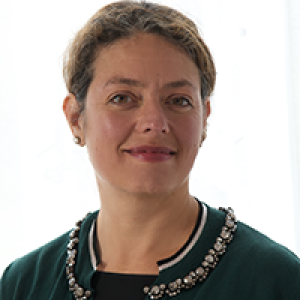
Saturday Aug 12, 2023
Ramona Liberoff | Citizens’ Climate Lobby | August 2023 Monthly Call
Saturday Aug 12, 2023
Saturday Aug 12, 2023
Ramona Liberoff is the Executive Director of PACE (Platform for Accelerating the Circular Economy). Her role is to manage the stakeholders within PACE, who include leading corporates, governments, academics and innovators, to achieve the goal of doubling circularity. Prior to joining WRI, Ramona worked at the intersection of global climate, innovation, and finance, at Roots of Impact, as the CEO of SPRING Accelerator, and as COO of the Innogy Innovation Hub, after a career of leading innovation for multinationals such as Unilever and Pepsico. She has founded several innovative businesses including circular transport and energy, and funded more than twenty, as well as mentoring several hundred impact start-ups.
Skip ahead to the following section(s):
(0:00) Intro & Agenda
(2:45) Ramona's Presentation
(13:18) Q&A Discussion
(25:13) Updates from Citizens' Climate International
(37:41) August Actions & National Updates
Helpful links:
Action Sheet: https://cclusa.org/actionsheet
August Pre-Call video: https://vimeo.com/853796120
August Action: https://cclusa.org/action
PACE Circular: https://pacecircular.org/

Friday Aug 11, 2023
Friday Aug 11, 2023
Extreme weather got people’s attention this summer. when the eastern U.S. was blanketed in smoke from Canadian wildfires and the south was hit with record-breaking extreme heat. Join CCL's Senior Director of Government Affairs Jenn Tyler for a training that will review how to prepare to find and attend your member of Congress's town hall meetings during the August Recess to help make these connections.
Skip ahead to the following section(s):
(0:00) Intro & Agenda
(2:45) Types of Town Halls
(13:55) Finding Town Halls
(16:43) Setting Your Objectives
(19:01) Tips, Tricks & What to Avoid
(25:41) Building Your Questions
Presentation Slides: http://cclusa.org/town-hall-slides
CCL Community Training page: https://community.citizensclimate.org/resources/item/19/264

Friday Aug 04, 2023
CCL Training: Carbon Border Adjustment Mechanisms and the PROVE IT Act
Friday Aug 04, 2023
Friday Aug 04, 2023
Join CCL's Research Team to dive into an understanding of what Carbon Border Adjustment Mechanisms (CBAMs) are, the importance of accurate carbon content calculations and what the PROVE IT Act does to help the U.S. get a firmer understanding of our domestic industry's lower carbon content advantage.
Skip ahead to the following section(s):
(0:00) Intro & Agenda
(2:02) What is a carbon border adjustment mechanism (CBAM)?
(16:19) How does a CBAM work?
(19:39) What’s happening with CBAMs in the USA and around the world?
(22:19) What role does the PROVE IT Act play in developing a CBAM?
(29:04) How Carbon Fee & Dividend complements a CBAM
Helpful resources:
Presentation Slides: https://cclusa.org/prove-it-cbams
Take Action: https://citizensclimatelobby.org/get-loud-take-action/prove-it-act/
Reports:
CLC's America's Carbon Advantage: https://clcouncil.org/reports/americas-carbon-advantage.pdf
RFF CBAM explainer: https://www.rff.org/publications/explainers/border-carbon-adjustments-101
More about the bills:
https://www.congress.gov/bill/118th-congress/senate-bill/1863
https://www.congress.gov/bill/117th-congress/senate-bill/4355
https://www.coons.senate.gov/imo/media/doc/one_pager__fair_transition_and_competition_act_-_117.pdf

Friday Jul 28, 2023
CCL Training: Extended Q&A with Dr. Adam Simon
Friday Jul 28, 2023
Friday Jul 28, 2023
Have a question for our May speaker for the CCL call, Dr. Adam Simon? Join us for an extended Q&A to explore your questions further on the topic of transitioning away from fossil fuels and toward clean energy with regards to the massive amounts of metals that go into the production of electric vehicles, batteries, induction stoves, wind turbines and solar panels. Do enough of these metals exist to get the job done? Where can they be found and can they be extracted in a sustainable manner that doesn't lay waste to our environment?
Skip ahead to the following section(s):
(0:00) Intro & Agenda
(2:00) How much can recycling current metals and reducing our energy use realistically lead to reductions in the need to mine new minerals?
(5:45) What bipartisan bills are out there that deal with mining this session?
(8:10) What are your recommendations on the best ways to engage Native American communities to center decision making with their interests?
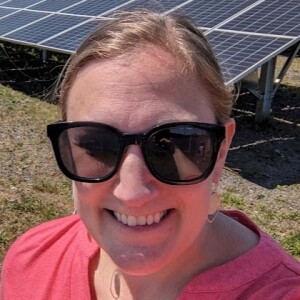
Friday Jul 28, 2023
Harnessing Local Political Power for Climate Change Solutions
Friday Jul 28, 2023
Friday Jul 28, 2023
As climate advocates, we want to get everyone engaged in some sort of climate action. When it comes to taking on global climate change, people can feel overwhelmed with the scale of the problem, and then they shut down. Brandi Robinson, Associate Teaching Professor in Energy and Mineral Engineering at Penn State University says, “You don't have to make climate change someone's top priority. You have to connect climate change to what they already care about, and figure out how you can work together on that.” She recommends we begin locally.
Brandi has been collaborating with her colleagues, Dr. Peter Buck, a sustainability and climate change professional, public servant, and educator. Together they co-direct the Centre Region Climate Action Program. Their work focuses on the local responses to global climate change, with specific interest in community-scale climate action planning.
In order to guide the municipality and region to meaningful climate mitigation and adaptation plans, Peter ran and won local office. “When I got elected,” Peter says, “I knew that I wanted to create a climate action plan without actually calling it a climate action plan. Because I didn't think that our region was ready for something that you would call it that. What I started doing was thinking about, okay, where are the things that Ferguson township does? Where can I influence whatever is happening?”
The efforts have been wildly successful. They not only saw the passage of Ferguson Township Resolution 27-14, a commitment to achieve net zero emissions by 2050, but regionwide they have multiple climate mitigation, adaptation, and education programs in place.
In this episode they not only share their successes, they reveal the best practices, strategies, and approaches that you can use in your own town and region.
Resilience Corner
There is no need to be overwhelmed in your climate work, especially when we use the resiliency tool at hand. In her latest installment of the Resilience Corner Tamara Staton connects our climate work with an emotion that doesn’t often come up–Joy. And speaking of joy, check out the silly TikTok host, Peterson Toscano made with Tamara in Portland, Oregon’s Forest Park.
The Resilience Corner is made possible through a collaboration with Tamara Staton, Education and Resilience Coordinator for Citizens Climate Education. For more tips, strategies, and practices to stay strong and steady in your climate work, visit The Resiliency Hub.
Good News
Singer Songwriter Dane Meyers hung out with volunteer climate lobbyists in DC. Together they created the Live, Laugh, Lobby song and music video.
Blending the mediums of music, video and climate activism, Dane has a long history of making sustainability feel less like a nightmare and more like a creative adventure. Beginning in 2019, his converted Tesla Model 3 became his home and recording studio for 18 months. The project showcased the unique capabilities of electric vehicles and led to a 17-song album entitled "The New American Dreamers."
Eager to connect with others, Dane is gearing up for his next adventure-a series of intimate living room concerts along the east-coast. These performances aim to spark interest in sustainability and inspire audiences to both process the deep losses of environmental devastation while celebrating the adventure into sustainability. Learn more at his website.
Listener Survey
We want to hear your feedback about this episode. After you listen, feel free to fill in this short survey. Your feedback will help us as we make new decisions about the content, guests, and style of the show. You can fill it out anonymously and answer whichever questions you like.
You can hear Citizens’ Climate Radio on:
Also, feel free to connect with other listeners, suggest program ideas, and respond to programs in the Citizens’ Climate Radio Facebook group or on Twitter at @CitizensCRadio.
Read a full transcript of this episode over at on our show notes.

